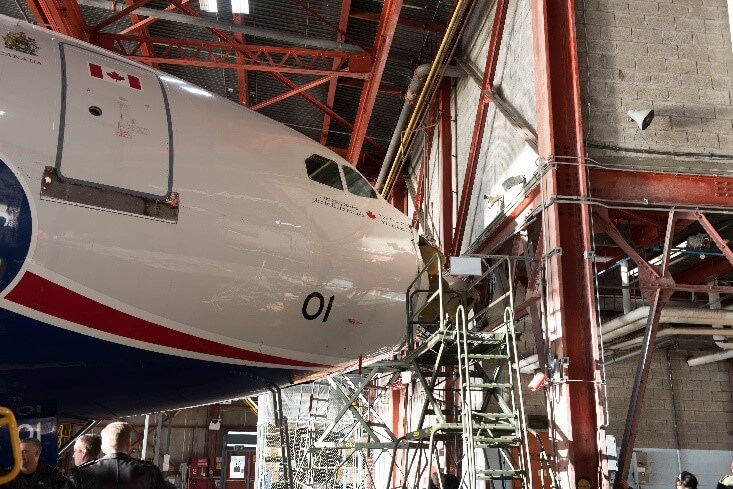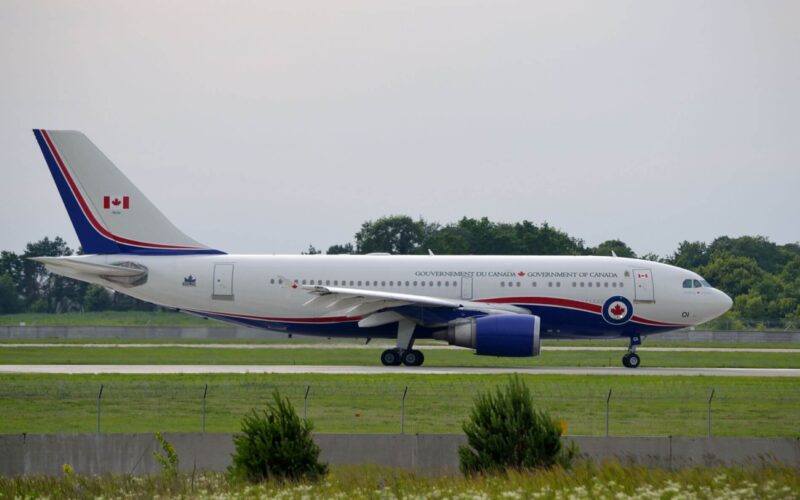Following the conclusion of the G20 Summit on September 10, 2023, Prime Minister Justin Trudeau and the Canadian delegation were left stranded in New Delhi due to unforeseen technical issues affecting their official aircraft, the Airbus CC-150 Polaris with the designation 15001.
“Upon arriving at the airport, the Canadian delegation received information that the Prime Minister’s plane was experiencing technical difficulties that could not be repaired in a short period,” Trudeau’s staff said in a statement to Radio Canada. The prime minister arrived in New Delhi early on September 9, 2023, for the G20 Summit.
With their aircraft grounded, the Canadian delegation had to remain in India until alternative transportation was arranged.
Later the same day, the Polaris registered 15002 took off from Canadian Forces Base (CFB) Trenton in Ontario. Initially expected at Rome-Leonardo da Vinci Fiumicino Airport (FCO), it diverted to London Stansted Airport (STN). 15002 was still in London when this article was published.
AeroTime sent a request for comment to the Office of the Prime Minister of Canada and the Canadian Air Force.
The curse of the Polaris fleet
Located at Canadian Forces Base Trenton in Ontario, the Polaris fleet is under the operational command of the Royal Canadian Air Force’s (RCAF) 437 Transport Squadron.
Originally, the five CC-150s served as commercial Airbus A310s, initially in service with the now-defunct Canadian carrier Wardair between 1987 and 1988. They were incorporated into the RCAF fleet in 1992, taking on various mission profiles.
The very first CC-150, bearing the designation 15001, became known as “Can Force One” or even colloquially referred to as the “Taj Mahal,” a nickname coined by former Prime Minister Jean Chrétien. This specialized aircraft was dedicated to transporting the Canadian Prime Minister during official travel.
Meanwhile, two of the CC-150s were repurposed for conventional troop and cargo transport missions. The remaining two airframes underwent significant modifications, being converted into mid-air refuelers based on the A310 Multi-Role Tanker Transport (MRTT) configuration.
However, the Polaris fleet hasn’t been without its share of incidents. On October 19, 2019, 15001 suffered damage during a towing operation at CFB Trenton, Ontario. Following extensive repairs conducted at Montréal–Mirabel International Airport (YMX), Québec, it returned to operational status on February 25, 2021. An investigation into this incident found that it resulted from the use of faulty equipment and inadequate training of towing personnel.

15011 following the 2019 towing incident at CFB Trenton (Royal Canadian Air Force)
Adding to the list of mishaps, on July 22, 2023, another Polaris aircraft, bearing the designation 15003, was involved in an accidental collision with a parked A400M aircraft belonging to the French Air and Space Force during a towing operation at Andersen Air Force Base on Guam Island. 15003 is still in Guam.
Commencing the process of replacing the Polaris fleet, the Government of Canada took a significant step on July 26, 2023, by awarding Airbus Defence and Space a contract valued at €2.1 billion. This substantial agreement encompasses the acquisition of four state-of-the-art Airbus A330 Multi-Role Tanker Transport (MRTT) aircraft, in addition to the conversion of five previously owned A330-200s.
The delivery of these new aircraft, expected to be designated as CC-330 Husky within the Royal Canadian Air Force fleet, is scheduled to begin in 2027.

